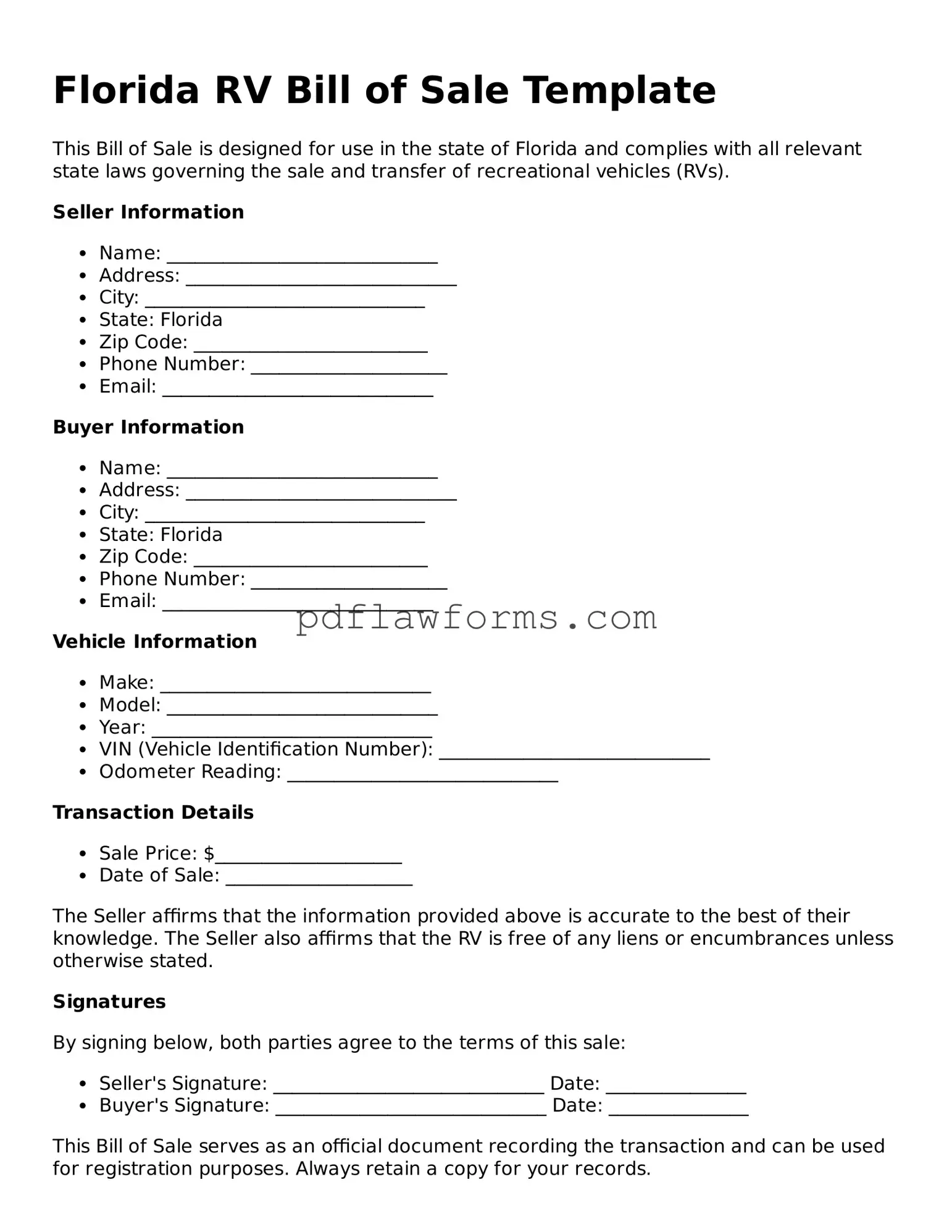RV Bill of Sale Form for the State of Florida
The Florida RV Bill of Sale form is a legal document used to record the transfer of ownership of a recreational vehicle in the state of Florida. This form serves as proof of the sale and includes important details such as the buyer's and seller's information, vehicle description, and sale price. Understanding this form is essential for both buyers and sellers to ensure a smooth transaction.
To get started, fill out the form by clicking the button below.
Make My Document Online

RV Bill of Sale Form for the State of Florida
Make My Document Online
You’re halfway through — finish the form
Edit and complete RV Bill of Sale online, then download your file.
Make My Document Online
or
⇩ RV Bill of Sale PDF
